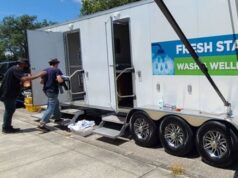 NATIONAL REPORT—Given the immense climatic challenges we currently face and the growing consumer demand for more sustainable products and services, businesses in every sector are starting to take their environmental impact seriously.
NATIONAL REPORT—Given the immense climatic challenges we currently face and the growing consumer demand for more sustainable products and services, businesses in every sector are starting to take their environmental impact seriously.
In hospitality, the situation is no different. Energy consumption in the industry is high, with cooling, lighting, heating, and ventilation responsible for up to 60 percent of a hotel’s CO2 emissions.
Energy-intensive extras such as heated swimming pools, excessive water and plastic use, and food waste also contribute to the industry’s environmental impacts.
Given these unavoidable energy requirements and resource needs, hotels must be smart about increasing energy efficiency and reducing their environmental impact while still delivering exceptional customer experiences. One way hotels and hospitality companies are achieving more sustainable practices is through sustainable technologies.
What is Smart Technology?
Smart technology is the term used to describe devices and systems that use data and internet connectivity to interact intelligently with people and other devices. It uses sensors and artificial intelligence to track what’s going on and automate tasks so you can operate more efficiently.
Smart technology, short for “self-monitoring, analysis and reporting technology”, is increasingly being used in homes, cities, and businesses to give us new ways to connect and control things. Common examples include controlling the lighting and heating in your home using a smartphone, and fitness trackers that count your steps and monitor your sleep.
Smart technology has also been introduced in many global hotel chains, with things like mobile key technology and check-in and check-out automation helping to improve the guest experience. However, it also has a vital role in making hotels more sustainable and reducing their environmental impact.
Why Hospitality Needs to Change
The Sustainable Hospitality Alliance is a U.K.-based charity that aims to transform the industry and advance net-positive hospitality to benefit the planet and people. It claims hospitality businesses must cut carbon emissions by 66 percent per room by 2030 if environmental benchmarks are to be met.
They can do that by:
- Implementing steps to reduce carbon emissions
- Designing more sustainable buildings
- Using more renewable energy
- Reducing the use of single-use plastic
- Implementing sustainable procurement strategies
- Encouraging biodiversity protection and regeneration
To date, there has been some progress in hotel sustainability, with the Cornell Hotel Sustainability Benchmarking Index, the leading tool for benchmarking hotel environmental performance, revealing a general decrease in water and energy usage among participating hotels. However, far more still needs to be done to avoid the worst impacts of climate change.
Sustainability as a Business Imperative
Sustainability is becoming a necessity in all sorts of industries, including hospitality. The picture from an environmental viewpoint is painstakingly clear. But aside from ethical concerns, sustainability is now essential for commercial success. Here are a few reasons why:
Customers expect it—A report from the World Travel and Tourism Council has found that more than two-thirds of people want to travel more sustainably this year, with around three-quarters of high-end travelers willing to pay more for sustainable trips. That’s backed up by a Booking.com survey, which found a third of respondents have stayed in sustainable accommodation over the last year and 62 percent intend to do so over the coming year. That suggests you can expect your occupation rates to suffer if you don’t take sustainability seriously.
Lower costs—As well as more bookings, increasing energy efficiency and reducing the environmental impact of hotels can save you money. According to the Sustainable Hospitality Alliance, hotels that prioritize sustainability can reduce operating costs by up to 30%. These savings come in several forms, including reduced waste, lower energy costs, and water conservation.
Reduced compliance risks—With countries and cities around the world increasingly tightening their sustainability regulations, making proactive sustainability improvements allows you to set the agenda and keeps you ahead of the curve. That reduces the risk of fines, bad publicity, and the expense of making reactive changes within timeframes outside of your control.
How hotels can leverage smart technologies—To make sustainability and efficiency gains, hotels are increasingly turning to Internet of Things (IoT) devices, such as sensors and appliances that connect wirelessly to a network. They can be monitored remotely and automated to provide granular control over the hotel’s systems. Here are a few examples:
Automated HVAC—Hotels have traditionally relied on conventional HVAC systems that run on predetermined schedules or are operated manually by guests. They are often left on in vacant rooms and waste huge amounts of energy. By using smart thermostats and occupancy sensors, hotels can reduce much of that wastage. When rooms are empty, they can adjust air conditioning and heating systems to avoid over-conditioning unoccupied spaces. That can lower operational costs and reduce the impact on the environment.
Optimized energy usage
Hotels increasingly use smart technologies and predictive analysis to anticipate peak usage hours and dynamically adjust their energy consumption. They can look at weather conditions, occupancy rates, and guest preferences to prevent energy spikes during high-demand periods. That enables hotel management to identify areas where energy is wasted, reduce operational costs, and contribute to a more sustainable energy grid while optimizing guest comfort.
Water management
The average hotel room uses around 1,500 liters of water a day, which is up to eight times more than the local population in water-scarce destinations. That makes water management a key sustainability priority for hotel operators and is an area where smart technologies can help.
IoT sensors can monitor water usage in hotel rooms and detect overuse and leaks in real time. Smart technology can also be paired with practical devices, such as low-flow shower heads, to reduce water usage. Some hotels also have automated irrigation systems that use local weather data to determine when to water gardens.
Hilton is one example of a hotel operator that has significantly reduced its water usage, by 43 percent since 2008, by implementing a smart water management system.
Food waste reduction
The hospitality industry is responsible for significant amounts of food waste, with research suggesting the U.K.’s hospitality sector alone produces 920,000 tons of food waste annually, of which 75 percent is avoidable.
This is another area where smart technologies can help hotel operators make significant sustainability gains. IoT sensors can monitor refrigerators and automatically flag when they are not operating effectively to reduce spoilage. Sensors can monitor expiration dates and alert kitchen staff when food needs to be used, and automated inventory systems use big data to track usage, determine stock levels, and prevent over-ordering.
Read more: Food waste management solutions for the hospitality industry
A Transformative Era in Hospitality Industry
Imagine a world where every hotel light, room, and system is working in perfect harmony to enhance sustainability. That’s what smart technology can do. This technological leap promises significant efficiency improvements and reductions in energy costs and emissions. There are upfront costs associated with retrofitting existing buildings that hotel owners and operators must consider, but smart hotels are more than just a luxury. Additionally, technology can be leveraged to enhance revenue generation.
Given the long-term benefits and increasing consumer demand for eco-friendly hospitality, adopting smart technologies can improve operational efficiency, reduce long-term costs, and set hotels up for a future where sustainability is a priority.







